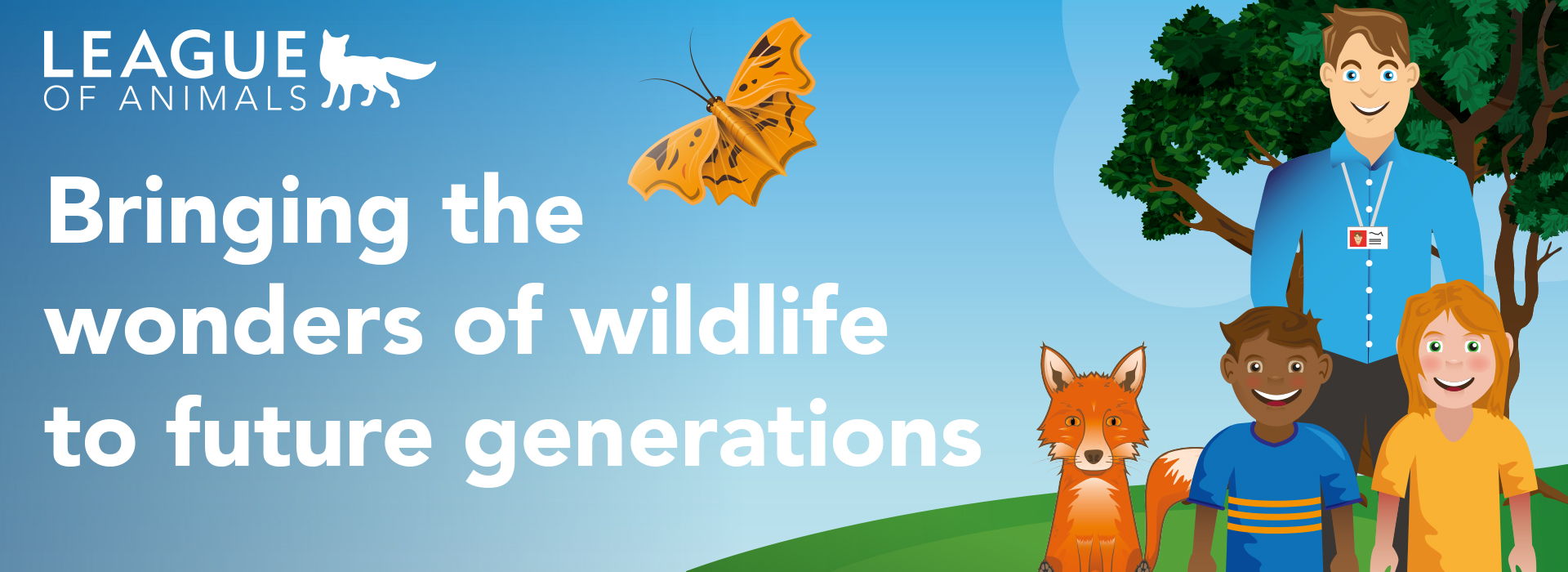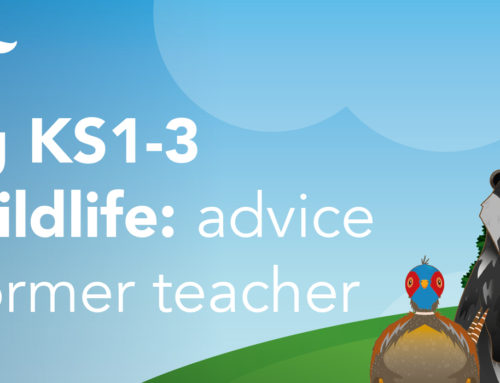By Paul Tillsley
One of the great pleasures of my job is being able to communicate to people of all ages about the work we do on the League Against Cruel Sports’ reserves and the wildlife that lives here.
It’s particularly satisfying to welcome visitors in person, so they can experience first-hand the wildlife that thrives in the peaceful surroundings of Baronsdown, our largest and most well-known reserve, which sits within Exmoor National Park, and also happens to be my home.
There’s no substitute for having your senses fully immersed in nature, so you can feel it, hear it, smell it and on occasions even taste it. If anything, the changeable Exmoor weather can actually add to the sensory explosion and greatly enhance the learning experience. Visits to nature can make us feel good in the short term, but it’s when we start making connections with nature that the long-term beneficial effects really kick in.
The benefits to our mental and physical health and wellbeing of being absorbed in nature are well documented. We learn from a young age that trees release oxygen into the air and filter out pollutants, but we now also know that trees exude other chemicals that help to boost out immune system and ‘forest bathing’ has become an accepted form of therapy. Connecting to nature helps to lower anxiety and improves self-esteem, by giving life purpose and meaning, and medical practitioners can now prescribe time in nature as an alternative to pharmaceutical drugs.
People who have high levels of nature connectedness are also more likely to make positive choices when it comes to helping nature and the environment, something that is essential as we face an environmental crisis and a massive fall in biodiversity.
Over the years, we’ve received visits from people of all ages, from schools and colleges, special interest groups, people recovering from mental health issues, and of course League supporters. When people come to Baronsdown we aim to give them an experience that helps them to connect to nature and to form an emotional bond that will stay with them. It doesn’t matter what age they are; it’s never too early or too late to make that connection.
And it’s natural to make such a connection when you’re surrounded by such majestic and inquisitive animals. Baronsdown is an idyllic safe haven for the roe deer, fallow deer, and plucky ‘game’ birds whom the nearby hunters would consider to be nothing more than trophies. When we have visitors, I like to take them in my Jeep across the fields the deer call home. It’s a joy to see the looks on their faces as they take in the sight: stags lazing in the grass, knowing that on this rare occasion they are safe. No hunters can reach them here.
After 22 years living on the reserve, I’m still learning, and I still regularly find new and exciting things that I haven’t previously seen, or I have forgotten about. It is one of the great joys of my life to share that mystery and excitement with others. Especially the young.
Young children tend to have an innate fascination with nature, and it’s only as they reach their teenage years that other distractions take over. If young people can be encouraged to hold onto that interest through adolescence and into adulthood, then there’s surely hope in building a more compassionate society.
Luckily, there are already some fantastic role models on social media who are leading the way. Megan McCubbin, the League’s Youth Ambassador and a fellow League of Animals supporter, has made excellent strides in this regard, using her knowledge in the pursuit of animal welfare and conservation. It’s worth noting that Megan cites her experiences as a child, growing up on the Isle of Wight, as the origin of her passion for wildlife.
This is what the League of Animals is all about. Our resources have been developed by teachers, for teachers, with the express aim of instilling a love of nature in future generations. As an educator myself, I know the feeling of passing on that spark – that inspiration – to someone else. Children watching roe deer in the Baronsdown fields; perhaps seeing a deer for the very first time. There’s nothing quite like it.
But there’s a greater imperative here. The more children we can encourage to cherish our natural world, the more likely we are to be able to protect it.
In the 22 years since I began living on Baronsdown, I’ve already seen telling changes to the environment. Hotter, drier summers seem to visit us every year. The populations of many beloved animals, from birds to butterflies, appear to have started to shrink.
Together, we can make the changes needed to protect our natural world. The more voices behind us, the more likely we are to succeed; and our duty as educators is to spread that message.
Unfortunately, it isn’t possible for everyone to come to the League’s reserves and so I’m grateful that I can share my experiences online. I’m also delighted to support the League of Animals programme. A simple act, such as making a bug box or a bird house can be enough to start a connection that lasts a lifetime. As educators, we have the honour of making that happen.




